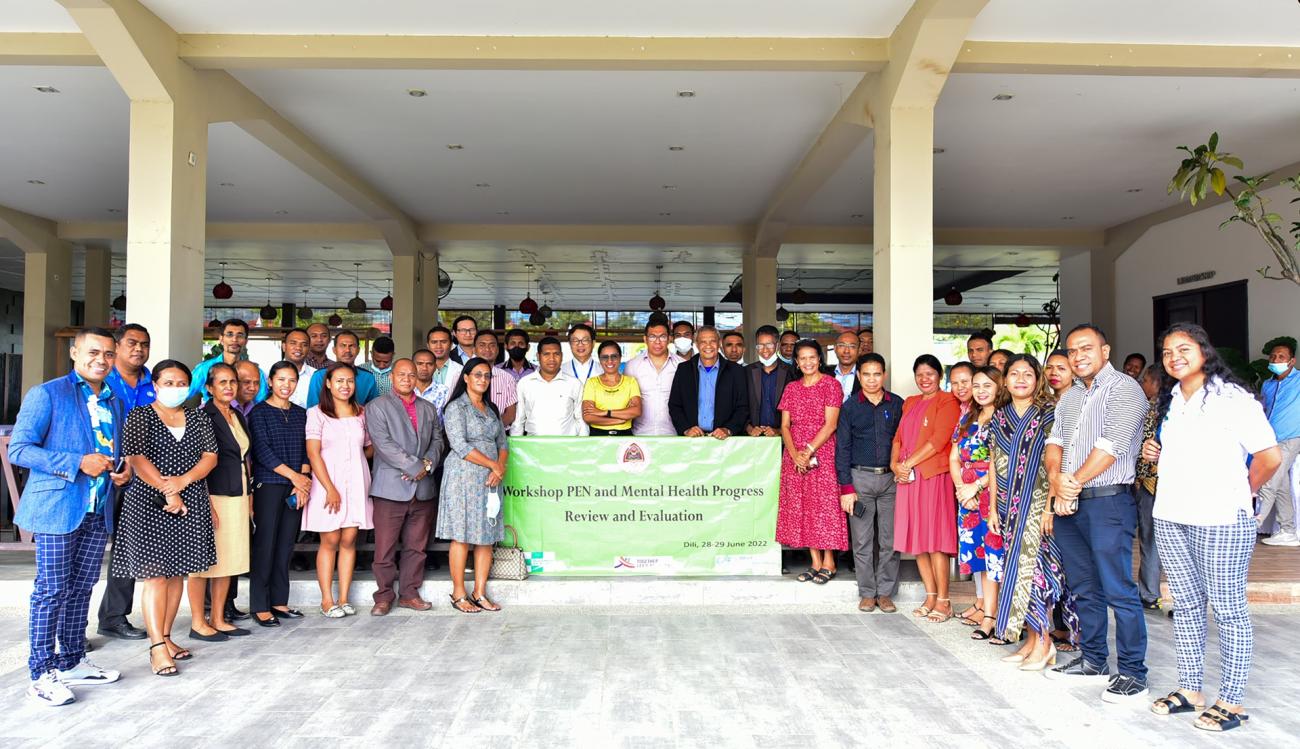The World Health Organization Timor-Leste in collaboration with the Ministry of Health conducted a two-day workshop and review on the implementation of the Package of Essential Noncommunicable Diseases (PEN). More than 50 health professionals from all 13 municipalities including the municipality health directors attended the event that concluded on June 29.
PEN consists of a set of feasible and cost-effective interventions for implementation at primary care settings designed by the WHO. These are targeted at early detection, management and prevention of life threatening Noncommunicable Diseases (NCDs) such as cardiovascular diseases, cancers, diabetes, Chronic Obstructive Pulmonary Disease (COPD) among others. These diseases are responsible for about 45% deaths in Timor-Leste.
The PEN protocol was adopted by the Ministry of Health in Timor-Leste in 2017 and it was rolled out as a pilot in two municipalities. In 2020, the delivery model and tools for PEN in the primary health centers (PHCs) were modified to befit the local needs and circumstances and make it more people centric. It was since rolled out in eight municipalities. However, the pandemic disrupted many routine healthcare activities. The two-day workshop aimed at learning and sharing the PEN implementation experiences, including best practices, challenges and the way forward to renew the focus on it after the long disruption caused by the pandemic.
The PEN protocol provides easy-to-use algorithms for early identification of priority NCDs (e.g., cardiovascular diseases, diabetes, cancers of the breast and cervix, COPD, stroke among others) and risk factors such as hypertension, tobacco and alcohol use and other unhealthy lifestyle habits. It also focuses on strengthening teamwork, providing comprehensive care, monitoring of essential medicines and supplies and treatment outcome (six-monthly hypertension control rates), referrals and providing regular follow-up care.








